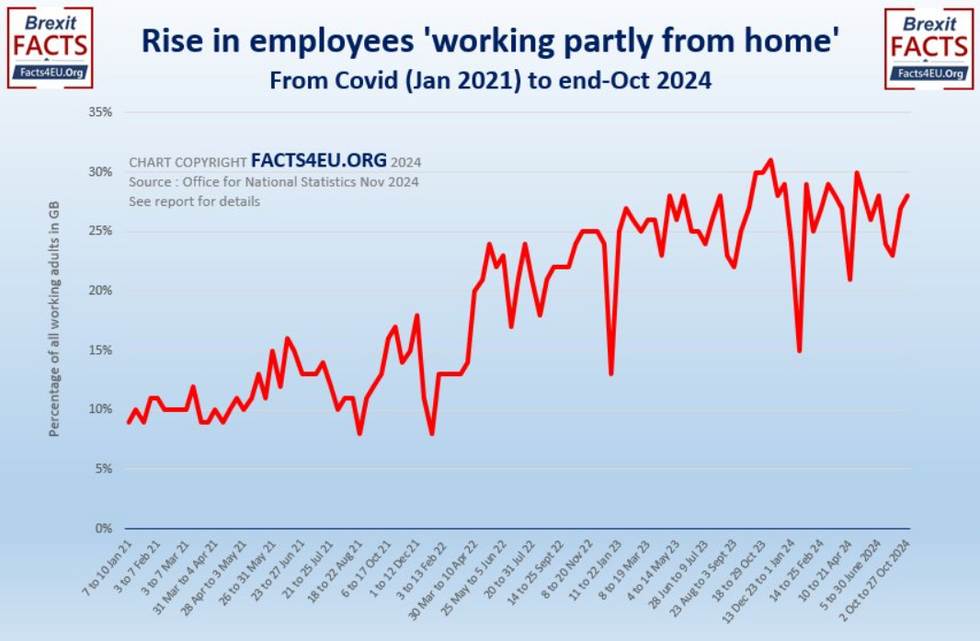Britain’s productivity crisis has deepened as net migration figures soar and Britons refuse to return to the workplace, latest official figures show.
The ONS admitted this week they had underestimated last year’s net migration significantly, missing out 166,000 migrants, roughly the population of Oxford or York.
This means productivity also fell as despite Britain having 906,000 more people enter than leave, it did not increase its economic output per hour worked.
In fact, ‘output per hour worked’- a key indicator of productivity- fell by -0.9 per cent between April and June this year, a much steeper drop than the -0.3 per cent fall the ONS had previously estimated.
So even with 484,000 more working age adults, all adding more hours to the UK’s total working hours number, the UK was not able to increase its output per hour.
This comes after the ONS also revealed that more than a quarter of Britons were ‘partly working from home’ in the autumn of 2024, a figure that has trebled since the Covid pandemic.
Analysis of the data showed 45 per cent of ‘managers, directors and senior officials’ work from home compared to the 27 per cent national average.
Perhaps in light of these figures, Prime Minister Keir Starmer is expected to pause Labour’s central manifesto pledge to achieve the highest sustained economic growth in the G7 this week.
 The levels of employees working ‘partly from home’ in BritainFacts4EU
The levels of employees working ‘partly from home’ in BritainFacts4EUHe and Rachel Reeves’ plan for ‘growth, growth, growth’ is set to be eclipsed by his party’s new “core” policy objectives this week.
Since the financial crash, low productivity levels have been blamed for Britain’s sluggish economic growth.
Indeed, from the crash to 2020, growth has been averaging 0.5 per cent. This is a rate not seen since at least the mid 1700’s before Britain fully industrialised.
Immigration sceptics have been quick to relabel this productivity crisis as an immigration crisis in the belief immigrants tend to work lower skilled jobs and therefore do not contribute to the economy as much.
LATEST FROM MEMBERSHIP:
But others like eco-electricity tycoon Dale Vince argue immigration is good for the economy, citing the many industries that rely on foreign workers or face collapse.
Sir Keir Starmer is keen to focus on his party’s core principles, however. He described his imminent reset as ‘the most ambitious yet honest delivery plan in a generation’.
He said the government was ‘knuckling down’ on delivering its election promises and that ministers would detail ‘measurable milestones’ by which the public could track the progress of the government towards its commitments.
Conservative leader Kemi Badenoch said: “Keir Starmer is having to relaunch… because Labour had no plan for government”.